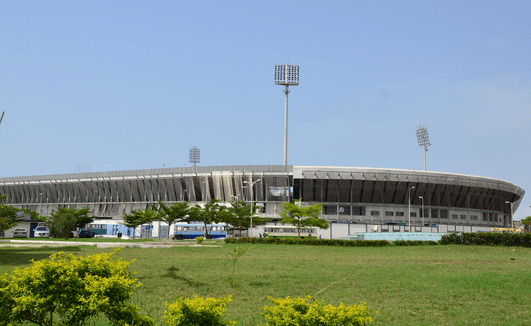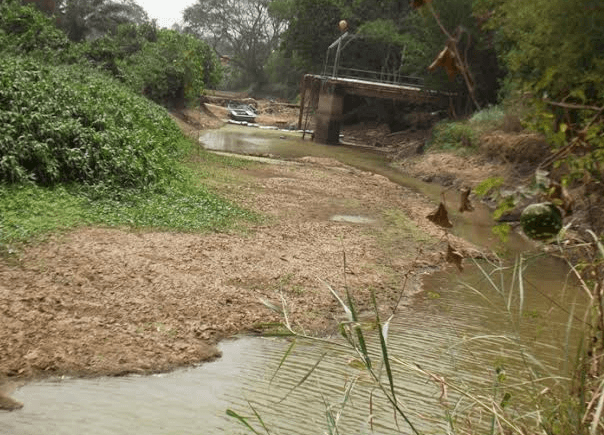
“A rat trap catches both the guilty and the innocent.” – African proverb
History has a way of repeating itself when a people fail to learn its lessons. Centuries ago, our ancestors were entangled in the Trans-Atlantic Slave Trade.
Many resisted, but some others, driven by rivalry, wealth, or survival, handed over fellow Africans in exchange for guns, gin, and manufactured goods. What seemed like profit in the moment ultimately crippled a continent, drained her of her strength, and condemned generations to bondage.
Today, Ghana is caught in a new cycle of exploitation, one eerily familiar. Our minerals, especially our gold is being stripped from beneath our soil at a pace that should alarm every citizen. Whilst the gold is being carted away, what is being left behind are dying communities. This is not development, it is self-destruction dressed in the clothes of prosperity for a few.
Our rivers, once the veins of our land, are choking with mercury and waste. And our forests are vanishing. Fertile farmlands are turning into poisoned wastelands. How long will our leaders and policymakers continue to pretend it is not as bad as it looks?.
Do all the rivers have to turn brown before we act? How many Ghanaians must drink poisoned water before we enforce the laws already on our books? How much longer will the powerful few who profit from galamsey be protected, while millions suffer the consequences?
We must be honest, we are not passive victims. Just as our ancestors played roles, some as sellers, others as resisters, we too are making choices today. Galamsey is not being undertaking by foreigners alone; it is being carried out by our own brothers and sisters, licensed by our own institutions, and often shielded by our own silence. For quick cash today, we are mortgaging the survival of tomorrow.
Today, let us remind ourselves that through our national pledge, we all swore to safeguard the nation’s heritage. Yet by allowing greed and impunity to flourish, we are positioning ourselves, our children, and their children in a disadvantaged position. If we continue this path, we will leave our children with barren soil, polluted water, and a fragile nation dependent on outsiders for food and survival. Is this the inheritance we want to pass on?
If we do not wake up and take bold actions now, history will judge our generation just as harshly as it judges the chiefs and rulers who traded their own people centuries ago. We will be remembered not for the gains we made, but for the inheritance we destroyed. Many of us do not realise that just as our ancestors, caught in the cycle of slave trading, did not realize they were crippling Africa’s strength and placing us in chains, so too are we failing to see that the poisoned rivers and barren soils will leave our descendants enslaved to hunger, poverty, and dependency on others.
It is true that many of us have never had any sense of appreciation for history because we perceive it as a backward subject. But if there is a body of knowledge today to help us fight galamsey, it is our history. It is time for all of us to let history teach us that when we trade our future for immediate wealth, we will not only be exploited, but we will become the architects of our own decline.
The chains of the past were iron and ships. The chains of today are mercury laced rivers, deforested lands, and poisoned crops. Both condemn future generations to inferiority and dependency. We must choose to be remembered as the defenders of Ghana’s future.
It is time to wake up to protect our land, to defend our rivers, to safeguard our soil is to honour the generations yet unborn. Let us stop making excuses that without profit from our gold, we cannot develop. There are quite a number of developed societies who do not have commercial quantities of natural resources. Almost all developed nations have demonstrated that it takes creativity and innovation to rise to greatness. Let us also carve a path similar to that.
We may have walked into a trap, but we have not been left without choice. Let us therefore choose to disentangle ourselves from our tragedy. Yes, we will experience some bruises, but history will remember our sacrifice, just as it remembers those who resisted the slave trade. It is better our descendants remember us as protectors of our land, than as the ones who sold them into ecological slavery. Let us rise, act, and defend what is ours, not for profit today, but for the dignity of tomorrow…
The post The Attitude Lounge with Kodwo Brumpon: The Tragic Trap appeared first on The Business & Financial Times.
Read Full Story






















Facebook
Twitter
Pinterest
Instagram
Google+
YouTube
LinkedIn
RSS